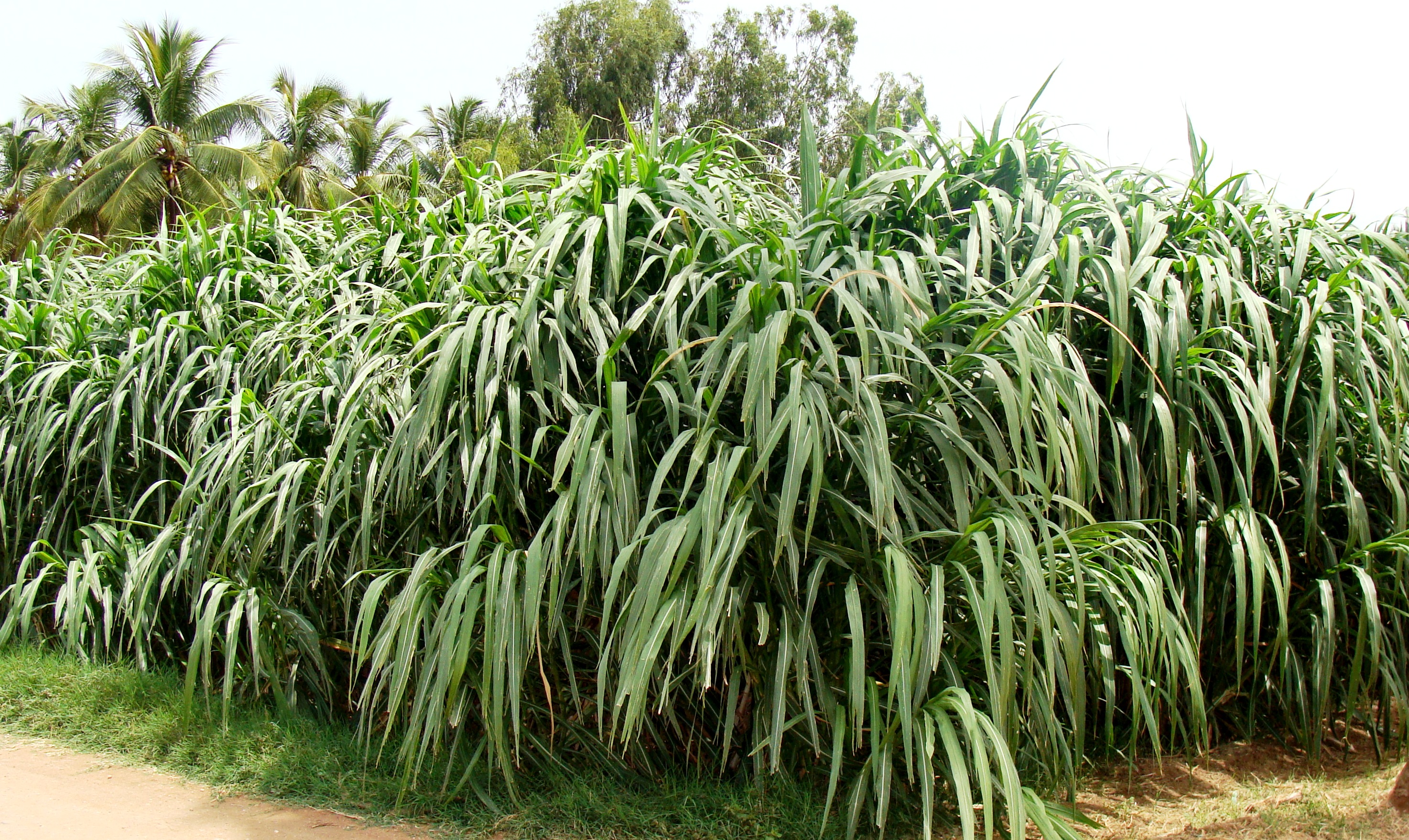
Season and Varieties
| Zone District/Season | Month | Varieties |
| Irrigated | ||
| All Districts | Throughout the year | KKM 1, CO 3 and CO (CN) 4 |
Yield Potential and Quality Characters
| PARTICULARS | KKM 1 | CO 3 | CO (CN)4 |
| Parentage | Interspecific hybrid between Cumbu IP 15507 x FD 429 | Interspecific hybrid between Cumbu PT 1697 xPenneisetumpurpureum | Interspecific hybrid between Cumbu CO 8 x FD 461 |
| Duration (Days) | Perennial | Perennial | Perennial |
| Green fodder yield (t/ha/yr) | 288 | 350 (7harvests) | 375-400 (7harvests) |
| Morphological characters | |||
| Plant height (cm) | 155-160 | 300 – 360 | 400-500 |
| No. of leaves per clump | 165-170 | 400-450 | 400-450 |
| No. of tillers per clump | 10-15 | 30 – 40 | 30 – 40 |
| Leaf stem ratio | - | 0.70 | 0.71 |
| Leaf length (cm) | 110-115 | 80 – 95 | 110-115 |
| Leaf width (cm) | 4.5-5.0 | 3.0 – 4.2 | 4.0-5.0 |
| Quality characters | |||
| Dry matter yield (t/ha/yr) | 47.23 | 65.12 | 79.87 |
| Crude protein yield (t/ha) | 4.65 | 5.40 | 8.71 |
| Dry matter (%) | 16.4 | 17.0 | 21.3 |
| Crude protein (%) | 9.85 | 10.5 | 10.71 |
| Oxalate (%) | 1.50 | 2.51 | 2.48 |
PREPARATORY CULTIVATION
1. PLOUGHING
Plough with an iron plough two to three times to obtain good tilth.
2. APPLICATION OF FYM
25 t/ha
3. FORMING RIDGES
Form ridges and furrows using a ridger, 60 cm apart.
4. APPLICATION OF FERTILIZERS
- Apply NPK fertilizers as per soil test recommendation as for as possible. If soil testing is not done, follow the blanket recommendations of 150:50:40 of NPK in kg/ha.
- Apply full dose of P,K and 50% N basally before planting. Top dressing of 50% N on 30 DAS.
- Repeat the basal application of 75 kg N/cut for sustaining higher yield
- Application of Azospirillum (2000g) and phosphobacterium (2000g) or Azophos (4000g) along with 75% of recommended dose of N and P fertilizers enhanced the yield besides saving of 25% of fertilizer dose.
5. PLANTING
- Irrigate through the furrows and plant one rooted slip/stem cutting per hill.
- Spacing 60 x 50 cm and 33,333 planting material are required to plant one ha.
6. WATER MANAGEMENT
Immediately after planting, give life irrigation on the third day and thereafter once in 10 days. Sewage or waste water can also be used for irrigation.
7. WEED MANAGEMENT
Hand weeding is done whenever necessary.
8. HARVESTING
First harvest is to be done on 75 to 80 days after planting and subsequent harvests at intervals of 45 days yields around 400 t/ha.
9. GREEN FODDER YIELD
400 t/ha
NOTE:
- Quartering has to be done every year or whenever the clumps become unwidely and large.
- Wherever necessary to alleviate the ill effects of oxalates in this grass, the following steps are suggested.
- Feeding 5 kg of leguminous fodder per day per animal along with these grasses or
- Providing calcium, bone meal or mineral mixture to the animal or
- Giving daily half litre of supernatant clear lime water along with the drinking water or sprinkling this water on the fodder.
No comments:
Post a Comment